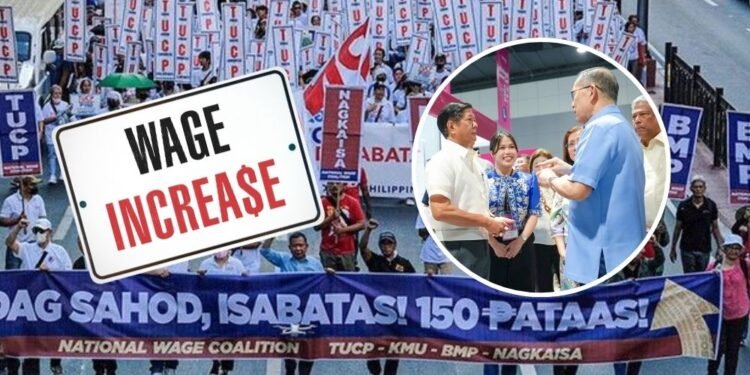A proposed ₱200 across-the-board daily wage increase for private sector workers is gaining momentum after House Speaker Martin Romualdez vowed to fast-track its approval. With inflation squeezing household budgets, labor groups are pushing hard for wage relief, while business owners warn of economic risks.
A Lifeline for Workers or an Economic Gamble?
The House Committee on Labor and Employment unanimously approved the wage hike measure after congressmen and labor groups agreed on the rate.
TUCP Partylist Rep. Democrito Raymond Mendoza, one of the bill’s authors, argues that the increase is long overdue and would help lift around 5 million minimum wage earners out of poverty.
“Enough is enough. Let’s end poverty wages,” Mendoza declared, pointing out that the last legislated wage hike was in 1989.
He emphasized that the current minimum wage of ₱645 in Metro Manila barely covers basic expenses after deductions from SSS, PhilHealth, and Pag-Ibig contributions—let alone emergencies like hospital bills.
“If we only approve ₱100, three regions—Bicol, Zamboanga Peninsula, and Bangsamoro—will still be below the poverty threshold. With ₱200, all regions will finally surpass it.”
The Business Sector Sounds the Alarm
While workers welcome the wage hike, business groups are raising concerns. Some employers warn that such an increase could trigger higher inflation, job losses, and discourage foreign investments.
Small and medium enterprises (MSMEs) may struggle to absorb the additional labor costs, potentially leading to layoffs or price hikes.
Meanwhile, the Senate previously approved a ₱100 minimum wage increase in March 2024, but labor groups argue that it isn’t enough to counter skyrocketing food, fuel, and transport costs.
Time Running Out for Wage Hike Approval
With the May 2025 elections approaching, Congress has only a few weeks left to pass the bill before the campaign season kicks in.
If President Bongbong Marcos certifies it as urgent, the House can approve it on second and third reading on the same day, expediting its passage. If not, the bill will have to be re-filed in the next Congress, delaying much-needed relief for workers.
“Mister President, you said no one should be left behind. But workers have been left behind for too long,” Mendoza urged.












